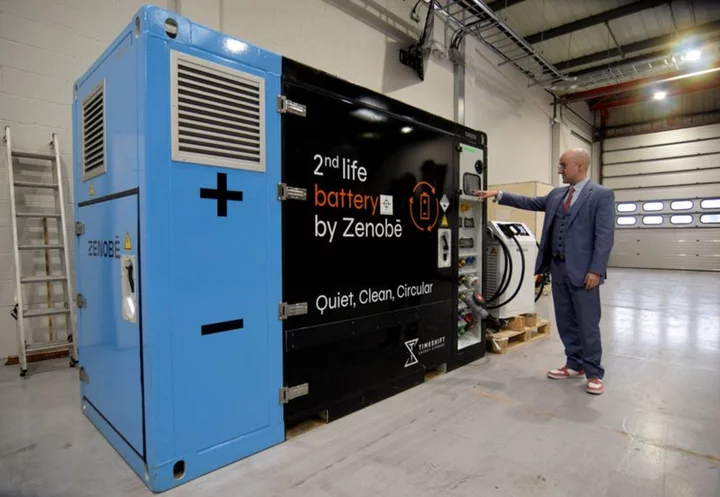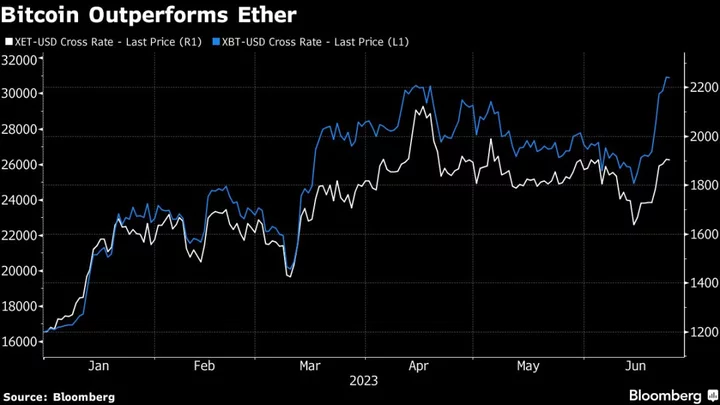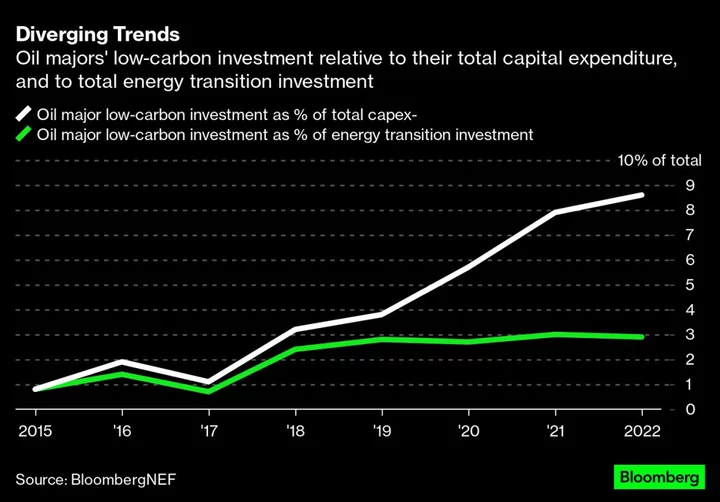
A second life for EV batteries? Depends how long the first is
By Nick Carey, Paul Lienert and Victoria Waldersee LONDON Global automakers have touted plans to re-use electric vehicle
2023-06-26 14:25

Emulate Unveils Chip-A1, Expanding Organ-on-a-Chip Technology Applications Within the Cancer and Cosmetics Markets
BOSTON--(BUSINESS WIRE)--Jun 26, 2023--
2023-06-26 14:24

'RHONJ' star Teresa Giudice hits back at trolls who accused her daughter Milania of using filters in prom photos
'RHONJ' star Teresa Giudice recently shares photo of her daughter Milania
2023-06-26 13:24

SimScale Strengthens Presence in Asia through Strategic Partnership with KKE Japan
MUNICH & TOKYO--(BUSINESS WIRE)--Jun 26, 2023--
2023-06-26 13:16

New High-Sensitivity Ultrasonic Sensor from Murata Has All the Essential Attributes Necessary to Support Greater Vehicle Autonomy
KYOTO, Japan--(BUSINESS WIRE)--Jun 25, 2023--
2023-06-26 10:17

Asus ProArt B760-Creator D4 Review
Designed for users of high-end creative apps, the Asus ProArt B760-Creator D4 motherboard ($229.99) is
2023-06-26 09:27

Ether’s Hazy Status at the SEC Leaves the Token Far Behind the Rally in Bitcoin
US regulatory uncertainty surrounding Ether is seen by some market observers as damaging the token’s performance compared with
2023-06-26 08:21

Apollo Global leads debt investment in chipmaker Wolfspeed - media
A group of investors led by Apollo Global Management is making a debt investment between $1 billion to
2023-06-26 02:50

Big Oil’s Pullback From Clean Energy Matters Less Than You Might Think
The world’s five biggest publicly listed oil and gas companies posted just under $200 billion in total profits
2023-06-25 22:56

The Best Keyboards for 2023
Like a musician’s finely tuned instrument, the right keyboard can elevate your PC experience from
2023-06-25 21:27

World’s Highest Puffs Charge Free Battery Technology “TOPOWER” — Real Disposables Exhibited in Dubai
DUBAI, United Arab Emirates--(BUSINESS WIRE)--Jun 25, 2023--
2023-06-25 19:52

Scientists have come up with a new meaning of life – and it's pretty mind-blowing
The meaning of life is the ultimate mystery – why do we exist? And is there a point to… well… anything? These are questions to which we may never find answers, but at least we can define what “life” means in scientific terms. And yet, our understanding of what life is is changing all the time, thanks to space exploration. As scientists continue to hunt for life beyond our own world, biologists are having to rethink the meaning of the word “life” itself. Sign up for our free Indy100 weekly newsletter Generally, biologists explain “life” as connoting a self-sustaining chemical system which is capable of performing functions such as eating, metabolising, excreting, breathing, moving, growing, reproducing, and responding to external stimuli. This definition works pretty well here on Earth (although there are some important exceptions, such as viruses), but experts have pointed out that if life exists elsewhere in the universe, it may not display the same properties that we’re used to. Indeed, it might be unrecognisable as life as we know it (forget those little green men). In which case, how will we spot it if it ever crosses our path? Astrobiologist Sara Imari Walker and chemist Lee Cronin think they’ve come up with a solution. The pair are now arguing that highly complex molecules found in all living creatures can’t exist thanks purely to chance. Therefore, they say, the universe must have a way of creating and reproducing complex information and retaining a “memory” of all of this.. In an interview with New Scientist, Walker, of Arizona State University, explained their radical idea on how objects come into existence. The concept, known as Assembly Theory, explains why certain complex objects have become more abundant than others by considering their histories. If the theory proves correct, it will redefine what we mean by “living” things and show that we’ve been going about the search for extraterrestrial life all wrong. In the process, we could even end up creating alien life in a laboratory, she stressed. In her discussion with New Scientist, Walker pointed out: "An electron can be made anywhere in the universe and has no history. You are also a fundamental object, but with a lot of historical dependency. You might want to cite your age counting back to when you were born, but parts of you are billions of years older. "From this perspective, we should think of ourselves as lineages of propagating information that temporarily finds itself aggregated in an individual." Assembly theory predicts that molecules produced by biological processes must be more complex than those produced by non-biological processes, as Science Alert notes. To test this, Walker and her team analysed a range of organic and inorganic compounds from around the world and outer space, including E. coli bacteria, urine, meteorites and even home-brewed beer. They then smashed up the compounds into smaller pieces and used mass spectrometry to pinpoint their molecular building blocks. They calculated that the smallest number of steps required to reassemble each compound from these building blocks was 15. And whilst some compounds from living systems needed fewer than 15 assembly steps, no inorganic compounds made it above this threshold. "Our system … allows us to search the universe agnostically for evidence of what life does rather than attempting to define what life is," Walker, Cronin, and others wrote in a 2021 Nature Communications article. The handy thing about this building block system – which they’ve dubbed the “'molecular assembly index” – is that it doesn’t rely on carbon-based organic materials to be identified. In other words, an alien could be made of entirely different stuff entirely and we’d still be able to spot it as life using the index. It also works regardless of what stage of “life” an extraterrestrial being is in – whether it is still in its infancy or has moved into a technological stage beyond our understanding. That’s because all of these states produce complex molecules which couldn’t exist in the absence of a living system. If all of this is hurting your head, let’s just get back to the basics: if there is a secret to life, it might all be down to what we do, not what we are. Have your say in our news democracy. Click the upvote icon at the top of the page to help raise this article through the indy100 rankings.
2023-06-25 19:17
